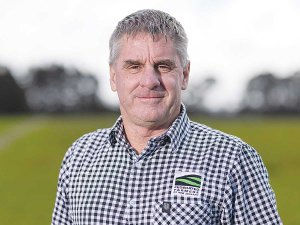Farmers are overjoyed to see a halt to freshwater farm plans put in place by the previous government.
Federated Farmers freshwater spokesman Colin Hurst says pressing pause on the rollout of freshwater farm plans until improvements can be made is a practical and pragmatic step from the new Government.
Hurst described the requirement for plans as "nothing short of a bureaucratic birds' nest for farmers that failed on all three counts".
Farmers also support the use of farm plans as a tool to help improve environmental outcomes but they need to be practical, cost-effective and easy to use, he adds.
DairyNZ says it makes sense to pause Freshwater Farm Plans while the system is improved.
"It has been our long-standing position that the current system could be improved to reduce cost and complexity, and better acknowledge the environmental progress farmers and the wider dairy sector are making," DairyNZ chair Jim van der Poel says.
"The pause makes sense and will be particularly welcomed by farmers and regional councils in areas where Freshwater Plans have started, including parts of Waikato, Southland, the West Coast, Otago, and Manawatū-Whanganui.
"It is good to see requirements will be simplified, complexity and cost reduced, and existing industry farm plans better recognised, as we have been advocating for.
"DairyNZ has been working with dairy companies to provide a dairy perspective while the regulations are reviewed, and we will continue to work with the Government to progress a workable and enduring solution."
The Government says making freshwater farm plans more cost-effective and practical for farmers is a priority.
Associate Environment Minister Andrew Hoggard says the plans support farmers in managing freshwater risks, but the current system is too costly and not fit-for-purpose.
"We have heard the concerns of the sector and Cabinet has agreed to pause the rollout of freshwater farm plans while potential changes are considered. Minor amendments to the Resource Management Act (RMA) will enable the pause.
"Once these amendments are made, farmers will not be required to submit a freshwater farm plan for certification while changes to the freshwater farm plan system are underway."
Federated Farmers says the farm plans were a good concept that had widespread buy-in from farmers and the wider primary sector. However, the previous government made it completely unworkable and unaffordable.
“Needlessly complex rules and duplication of effort added nothing but cost and frustration for farmers, who just want to do the right thing.”
Hurst says the prospect of a five-figure bill for a new farm plan eroded a lot of goodwill from farmers, particularly those who already had a perfectly good plan in place.
More than 10,000 farmers already have some form of farm plan through their milk processor, meat processor or regional council requirements.
None of those existing plans would have been recognised under the current regulations.
“The whole process has felt incredibly messy for farmers, with many facing a legal requirement to get a new plan before proper systems and processes were even in place,” Hurst says.
“Thousands of farmers in Southland and Waikato were expected to have a certified farm plan by February 2025, but until very recently there weren’t even certifiers in place to do the work.”
Federated Farmers understands that after 12 months of the rules being active, only one farmer in the entire country has actually got a certified freshwater farm plan approved.
“Those completely unrealistic timeframes and requirements meant these regulations were set to fail from the get-go,” Hurst says.
“The Government has made the right decision pausing the rollout of freshwater farm plans while the rules are being reviewed.
“There’s no point continuing to waste millions of dollars of farmers’ money trying to force a square peg into a round hole.”



















